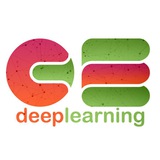#Torch-Struct: Deep Structured Prediction Library
The literature on structured prediction for #NLP describes a rich collection of distributions and algorithms over #sequences, #segmentations, #alignments, and #trees; however, these algorithms are difficult to utilize in deep learning frameworks. We introduce Torch-Struct, a library for structured prediction designed to take advantage of and integrate with vectorized, auto-differentiation based #frameworks. Torch-Struct includes a broad collection of #probabilistic structures accessed through a simple and flexible distribution-based API that connects to any deep learning model. The library utilizes batched, vectorized operations and exploits auto-differentiation to produce readable, fast, and testable code. Internally, we also include a number of general-purpose optimizations to provide cross-algorithm efficiency. Experiments show significant performance gains over fast baselines and case-studies demonstrate the benefits of the library. Torch-Struct is available at:
Code: https://github.com/harvardnlp/pytorch-struct
Paper: https://arxiv.org/abs/2002.00876v1
@cedeeplearning
The literature on structured prediction for #NLP describes a rich collection of distributions and algorithms over #sequences, #segmentations, #alignments, and #trees; however, these algorithms are difficult to utilize in deep learning frameworks. We introduce Torch-Struct, a library for structured prediction designed to take advantage of and integrate with vectorized, auto-differentiation based #frameworks. Torch-Struct includes a broad collection of #probabilistic structures accessed through a simple and flexible distribution-based API that connects to any deep learning model. The library utilizes batched, vectorized operations and exploits auto-differentiation to produce readable, fast, and testable code. Internally, we also include a number of general-purpose optimizations to provide cross-algorithm efficiency. Experiments show significant performance gains over fast baselines and case-studies demonstrate the benefits of the library. Torch-Struct is available at:
Code: https://github.com/harvardnlp/pytorch-struct
Paper: https://arxiv.org/abs/2002.00876v1
@cedeeplearning
GitHub
GitHub - harvardnlp/pytorch-struct: Fast, general, and tested differentiable structured prediction in PyTorch
Fast, general, and tested differentiable structured prediction in PyTorch - harvardnlp/pytorch-struct
🔻 Open Images V6 — Now Featuring Localized Narratives
Open Images is the largest annotated image dataset in many regards, for use in training the latest deep #convolutional #neural_networks for #computer_vision tasks. With the introduction of version 5 last May, the Open Images dataset includes 9M images annotated with 36M image-level labels, 15.8M bounding boxes, 2.8M instance #segmentations, and 391k visual relationships. Along with the dataset itself, the associated Open Images Challenges have spurred the latest advances in #object_detection, instance segmentation, and visual relationship detection.
📌 Via: @cedeeplearning
link: https://ai.googleblog.com/search?updated-max=2020-03-11T09:00:00-07:00&max-results=10
#image_detection
#machinelearning
#deeplearning
Open Images is the largest annotated image dataset in many regards, for use in training the latest deep #convolutional #neural_networks for #computer_vision tasks. With the introduction of version 5 last May, the Open Images dataset includes 9M images annotated with 36M image-level labels, 15.8M bounding boxes, 2.8M instance #segmentations, and 391k visual relationships. Along with the dataset itself, the associated Open Images Challenges have spurred the latest advances in #object_detection, instance segmentation, and visual relationship detection.
📌 Via: @cedeeplearning
link: https://ai.googleblog.com/search?updated-max=2020-03-11T09:00:00-07:00&max-results=10
#image_detection
#machinelearning
#deeplearning
